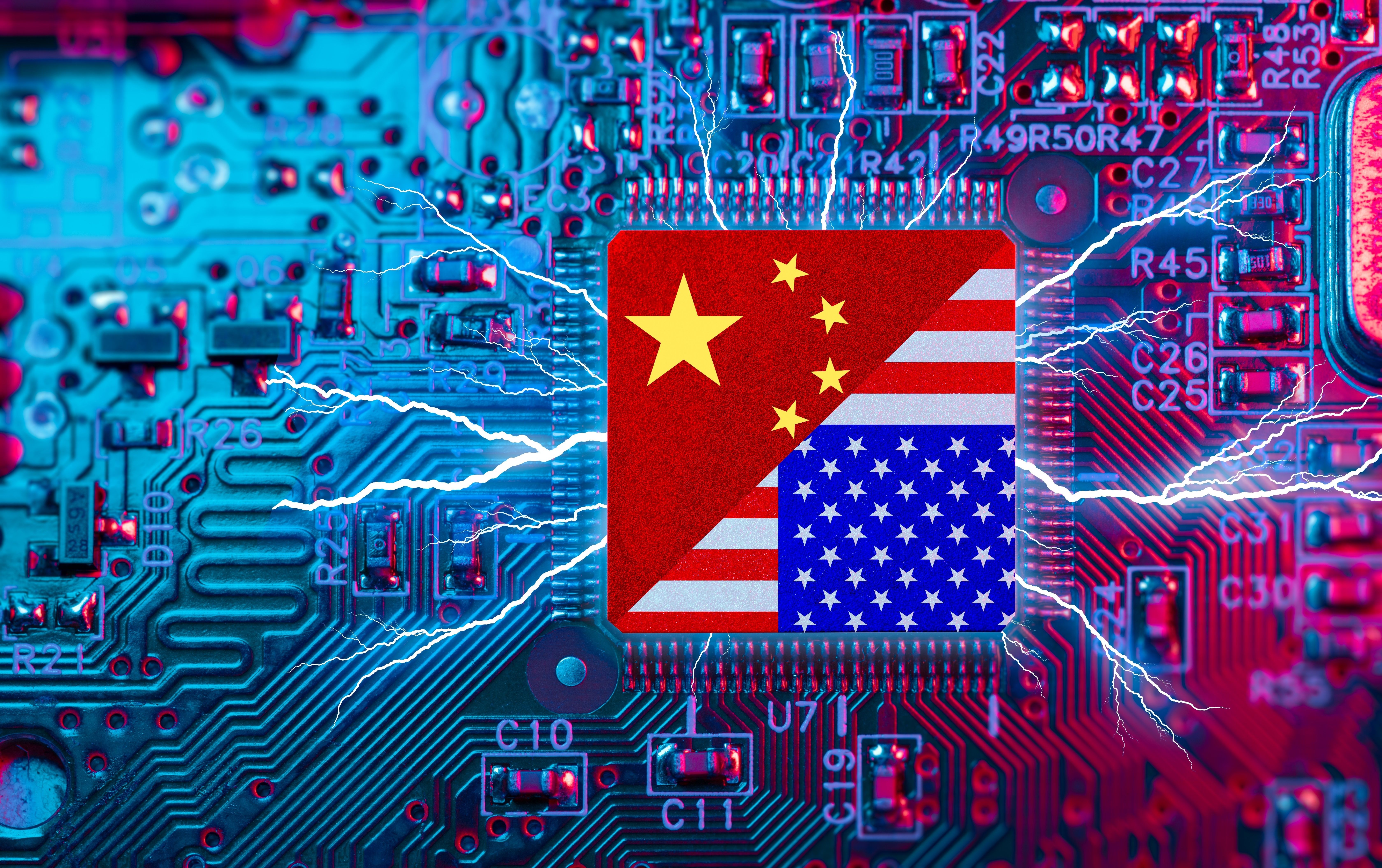This article was republished, with permission, from the Nonzero Newsletter.
In October of 2022, President Biden launched America’s “chip war,” imposing restrictions on China’s access to advanced semiconductors and the equipment needed to make them. The goal was to slow China’s progress in artificial intelligence, which the Biden administration had identified as a critical strategic asset. So, as the two-year anniversary of this Cold War II campaign approaches, how is it going?
Fine, according to Commerce Secretary Gina Raimondo, who oversees the policy. This week, Foreign Policy published a piece based on an extensive interview with the chip-warrior-in-chief, and in it she assures America that she’s fully engaged. She says that she’s “connected at the hip” with military and intelligence agencies and that Defense Secretary Lloyd Austin calls her his “battle buddy.”
Raimondo is aware that there are chip war skeptics, who say Biden’s policy has spurred China to accelerate development of an indigenous chipmaking infrastructure. And she’s aware of evidence supporting this concern: The Chinese company Huawei surprised the world last year by putting a homemade 7-nanometer chip in its Mate 60 smartphone. But she says there are doubts about whether those chips can be produced at scale and argues that China continues to lag behind America in AI.
In the weeks since Foreign Policy interviewed Raimondo, though, Huawei has upped the ante again. The Wall Street Journal reports that the company will soon introduce a new AI chip—the Ascend 910C—that it says rivals industry leader Nvidia’s most powerful chip, the H100. If Huawei is right about that, its new chip will easily surpass the hobbled version of the H100 (the H20) that Biden allows Nvidia to sell to China. (Meanwhile, Nvidia’s next-generation AI chip, the B200, reportedly faces a delay of at least three months owing to a recently discovered design flaw.) The Journal piece observes that “Huawei’s ability to keep advancing in chips is the latest sign of how the company has managed to break through US-erected obstacles and develop Chinese alternatives to products made by the US and its allies.”
Elaboration on the sources of China’s progress comes from Paul Triolo of the Albright Stonebridge consulting group, who recently published an in-depth assessment of Biden’s chip war. In a recent episode of the Sinica podcast, Triolo explained that “before October 2022, when Chinese companies could buy the most advanced tools from US suppliers, Japanese suppliers and Dutch suppliers,” there was less incentive to develop Chinese toolmaking capabilities, and this fact “to some degree held back Chinese toolmakers.” But since Biden launched the chip war, “hundreds” of Chinese companies—“toolmakers, materials makers, design companies, EDA [electronic design automation] toolmakers”—have increased their coordination, with Huawei playing an orchestrating role.
The US war on Huawei predates its broader assault on China’s advanced chip industry. The Trump administration, in addition to barring Huawei hardware from America’s 5G network, muscled the company off of the Android smartphone platform. Huawei responded by developing its own operating system, and now, with China’s chipmaking capability growing, “Huawei has arguably come roaring back,” said Triolo. “The biggest losers are US toolmakers.” Hurting American companies isn’t traditionally part of a commerce secretary’s portfolio. Then again, as Raimondo notes, “We’re at the red-hot center of national security and economic competitiveness. Some of that is because technology is in the middle of everything, and some of it, I think, is just the way in which I have managed this place.”
Triolo says China’s chipmaking infrastructure isn’t yet close to full recovery from the Biden assault. “In some sense, of course, the controls have been successful. But on the other hand they have massively incentivized China’s industry to try and overcome some of these bottlenecks.”
Meanwhile there are other costs of the Biden policy. It has caused tension with US allies whose tech companies are affected (and the resolution of those tensions sometimes dilutes the policy). And, because the policy prohibits Taiwan’s TSMC foundry—the most advanced chip factory in the world—from exporting high-end chips to China, China now has less to lose from starting a war with Taiwan. A war would almost certainly leave the TSMC factory enduringly incapacitated, which would still stop the flow of advanced chips to the West.
The Biden policy also steepens the already severe challenge of having a constructive dialogue with China about the international governance of AI, or even about the nurturing of international AI norms. And lots of analysts say that ultimately any effective governance of AI will have to be international—and will have to involve, in particular, the world’s two AI superpowers, the US and China.
Perhaps not coincidentally, Huawei released its Mate 60 while Raimondo was visiting China. And, much to Raimondo’s displeasure, someone made fake Mate 60 ads featuring a picture of her and put them on social media. “My kids sent me the [memes], saying ‘Mom, this is terrible!’ because it’s all over TikTok,” Raimondo told Foreign Policy. (She seems to say that she saw actual billboards in China with such ads, but fact checking by Radio Free Asia renders any such claim dubious.)
The US seems to be moving toward a further tightening of tech exports to China. Triolo says that’s in part because of pressure from Congress in the wake of Huawei’s successes and “in part because Secretary Raimondo was angry that Huawei released the Mate 60. So there’s some sort of payback here that’s coming. I call it the Huawei revenge rule.”
- Risks are higher than ever for US- China cyber war ›
- Hyped China fears are driving a high-tech arms race ›
- Will AI make soldiers obsolete? | Responsible Statecraft ›
- Forget regs, AI CEOs got a need for speed to 'beat China' | Responsible Statecraft ›
- Targeting China, Biden fires a big tech salvo at the entire world | Responsible Statecraft ›
- Bipartisan outrage after Trump greenlights Nvidia chips to China ›
















